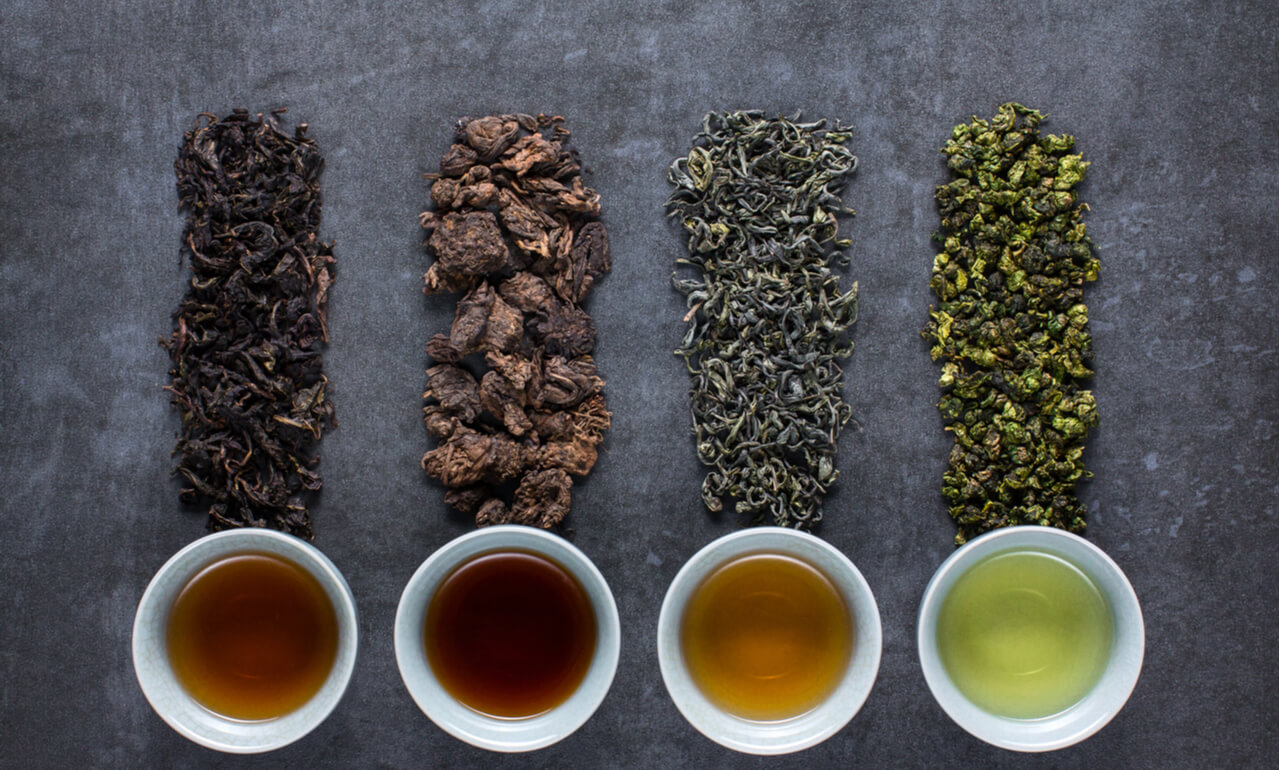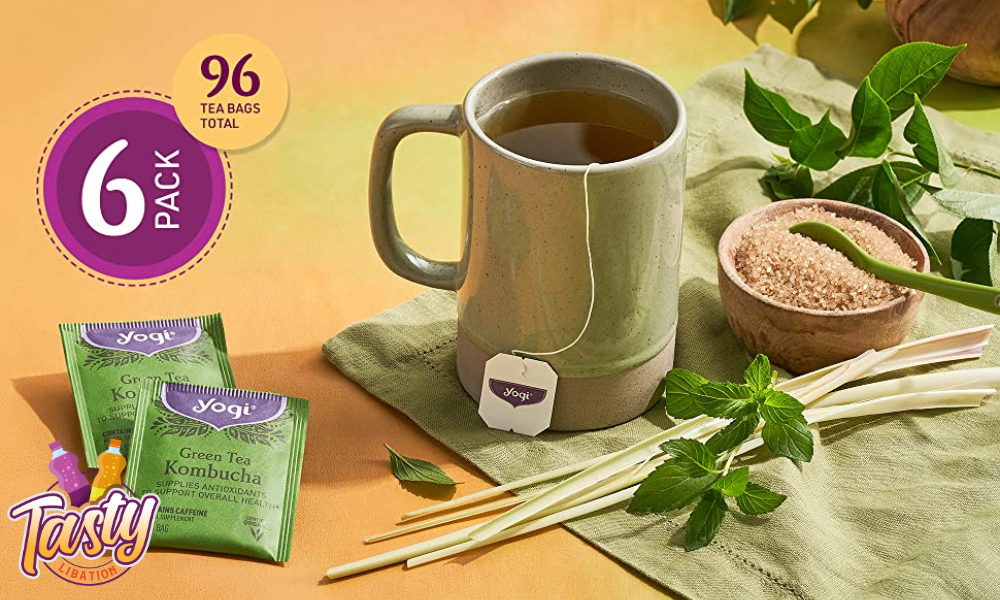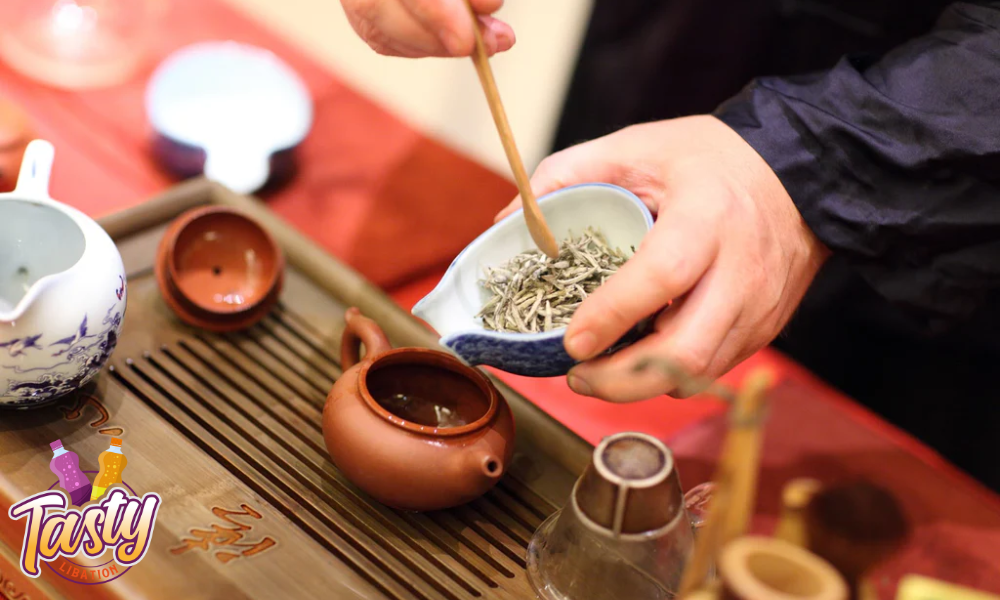If you ever walk into a store to get some tea, you’ll probably feel overwhelmed by the numerous types of teas you’ll find. You might see black tea, green tea, chamomile tea, and oolong tea, among many others.
Each type of tea contains different properties that target specific health concerns. These health concerns include digestive problems, sleeplessness, and lung health.
If you’re confused about what kind of tea you want to get for whatever issue you have, then keep reading the article. It addresses five main health concerns and what kind of teas help with the problems.
Best for overall health: Green Tea
The best tea for your overall health is green tea. It’s rich in antioxidants, polyphenols, and many other nutrients that benefit your health.
You’ve probably already heard of some of the benefits of green tea. Firstly, it’s very hydrating, so it’s often recommended for those who have trouble drinking water in winter. Secondly, it’s rich in antioxidants, which significantly improve your health. One such antioxidant is epigallocatechin-3-gallate (EGCG).
EGCG is a type of catechin. Catechins are a kind of antioxidant that can help protect the body against damage caused by free radicals. They are unstable molecules that can damage cells and contribute to developing chronic diseases like cancer and heart disease.
The catechins in green tea also slow down the aging of the brain. Studies suggest that these antioxidants reduce the risk of brain diseases such as dementia, Alzheimer’s disease, and Parkinson’s disease.
Moreover, green tea also improves your brain functions. The two main components that play this role are caffeine and L-theanine. Caffeine is a stimulant widely known for its brain-boosting properties. Green tea contains much less caffeine than coffee, which helps you stay alert without the jittery feeling of too much caffeine.
L-theanine, on the other hand, is an amino acid best known for its calming properties. It helps alleviate stress and anxiety. When paired with caffeine, it also helps focus and stimulate the brain. This duo is another reason why green tea is considered a healthy alternative to coffee.
Furthermore, green tea also prevents type 2 diabetes and cardiovascular diseases. Some studies suggest green tea reduces blood sugar levels, which prevents the risk of becoming diabetic. Green tea also reduces LDL cholesterol levels which are bad for the body, thus reducing the risk of heart disease and stroke.
Finally, green tea also helps in reducing weight. It boosts the body’s metabolic rate, which helps the body burn fats more quickly. Besides the health benefits, green tea also comes in various flavors from different brands, making it more delicious to drink. Some flavors include mint, jasmine, apple cinnamon, and matcha.
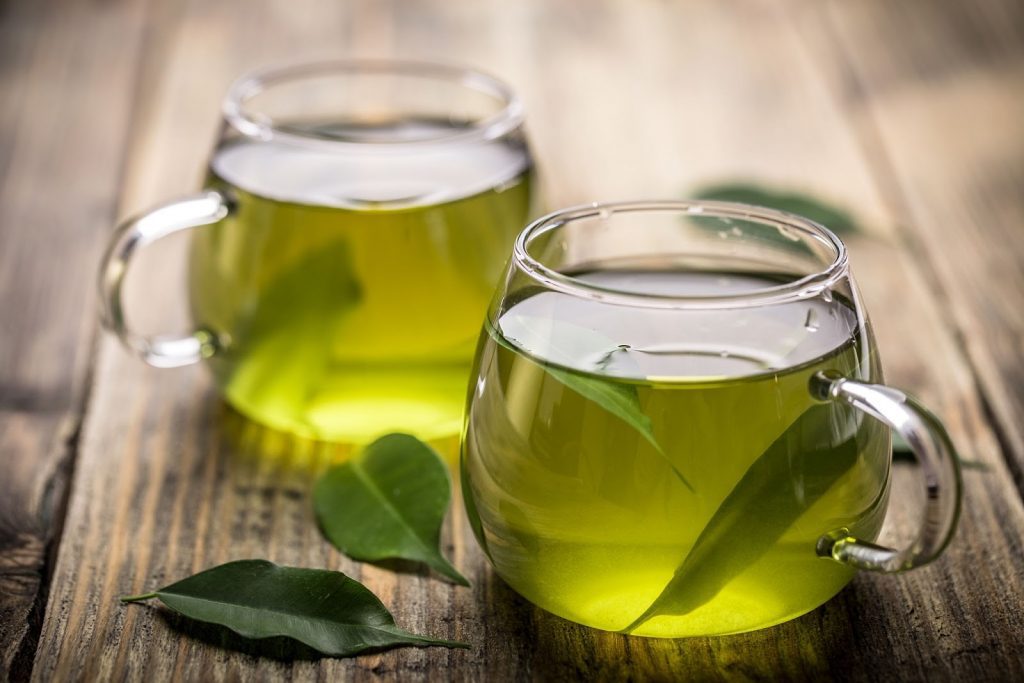
Best for gut health: Peppermint Tea
Although many types of tea have gut-improving properties, peppermint tea is the best one for your gut and digestive system. It’s naturally sweet and minty and has many benefits for your body.
Peppermint is known to relieve symptoms of bloating, gas, and indigestion. It allows your digestive system to relax and stops smooth muscles from contracting, thus preventing abdominal spasms. These properties also benefit people with irritable bowel syndrome (IBS.)
Peppermint is also known for its aid in reducing nausea and vomiting. This mint (or other forms of mint) is usually ingested along with lemon to alleviate symptoms of nausea, especially during motion sickness. However, besides improving gut health, peppermint also has additional benefits.
It’s also a form of muscle relaxant. While this helps relieve abdominal pains, it can also relieve headaches and migraine. This is because peppermint contains menthol, which has a cooling sensation and helps improve blood flow. Thus, peppermint oil is usually used on your temples to reduce headaches.
Certain teas can dry out your mouth, resulting in bad breath. However, peppermint tea has a minty taste and smell, which is much better for your oral health than some tea and coffee.
Moreover, peppermint tea helps relieve menstrual cramps due to its muscle-relaxing properties. This property also makes the tea an excellent choice to help you relax and sleep before bed.
Finally, peppermint has many cold-relieving properties. It clears your sinuses and helps decongest the nose when you have the flu. According to some studies, experts also found peppermint to inhibit bacterial activity, which suggests that peppermint tea can help prevent bacterial infections to some extent.
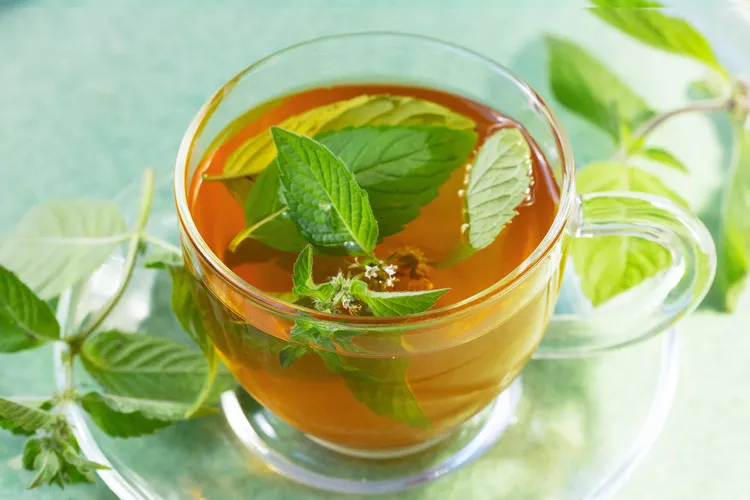
Best for sickness: Ginger Tea
One of the best teas to relieve symptoms of sickness like cold and flu is ginger tea. Ginger is used as both a spice and a medicinal plant and has several health benefits.
Ginger is used in many different forms, like extracts, tablets, and tea. Ginger tea helps alleviate flu, cough, and common cold symptoms. Ginger contains two main components that provide the most health benefits: gingerol and shogaol.
Ginger is said to have anti-inflammatory properties along with many antioxidants. According to a study, these properties help soothe a sore throat and can inhibit cough. Hot ginger tea also helps to reduce congestion.
Ginger tea is especially effective for a cold when adding ingredients like cinnamon and honey. This concoction is good for clearing your airways and soothing an irritated throat.
Besides being beneficial for sickness, ginger tea has a lot of other health benefits for your body. Ginger tea is known to alleviate symptoms of nausea and vomiting. This is why it’s beneficial for people with motion sickness, morning sickness during pregnancy, and nausea due to chemotherapy.
Ginger is also beneficial for those with heart problems. It lowers blood pressure and cholesterol, prevents clots and heartburn, and improves overall blood circulation. However, you should consult a professional before drinking more than a cup or two of ginger tea if you take thinning blood and blood pressure medication.
Ginger tea also relieves menstrual cramps as it contains pain-relieving properties. It is also anti-inflammatory and is said to alleviate knee osteoarthritis pain. Ginger also helps prevent cancer. The gingerol and shogaol in ginger help fight cancer cells and prevent their multiplication and growth.

Best for lung health: Turmeric tea
Among many different teas, turmeric tea is the best tea for improving lung health. Turmeric has been used as a herbal remedy for thousands of years. It has many health benefits, including boosting your immune system.
Turmeric contains the active compound curcumin, one of the main components that give turmeric its health benefits. Curcumin is proven to have anti-inflammatory properties and antioxidants, which makes it very beneficial for many parts of your health.
Turmeric has properties that help improve lung health. Its inflammatory properties allow it to reduce inflammation in the respiratory tract. The curcumin present also helps maintain lung health and boosts the body’s immunity. According to a medical review, curcumin aids in the treatment of asthma, lung cancer, and chronic obstructive pulmonary disease.
Besides lung health, turmeric has many other health benefits. The curcumin in turmeric helps boost your immune system and contains antiviral and antibacterial properties. It also acts as an immune modulator against cancer. It even limits the growth of tumors and cancerous cells and lowers the risk of cell mutations in the body.
Furthermore, the health benefits of curcumin help prevent and treat neurodegenerative diseases such as Alzheimer’s. Experts believe it helps prevent inflammation and cellular damage leading to neurodegeneration. Curcumin also helps protect liver cells from being harmed by bile-associated chemicals. It also prevents the formation of gallstones.

Best at bedtime: Chamomile Tea
One of the most calming teas is chamomile tea. This makes it the perfect tea to drink before bedtime to relax and help you fall asleep. Chamomile also has other health benefits besides improving your sleep, like improving digestion.
Chamomile tea is made of dried chamomile flowers. One of the main compounds that chamomile contains is apigenin, an antioxidant. Apigenin binds to receptors in your brain that help improve sleepiness and decrease insomnia. Some studies suggest chamomile reduces anxiety which enables you to fall asleep. However, there’s no conclusive evidence to back this.
Besides improving sleep, chamomile also contains anti-inflammatory properties. This property makes chamomile soothing for the stomach. It helps with gastrointestinal problems such as gas, stomach ulcers, and nausea.
Apigenin in chamomile is said to help fight certain types of cancers like the breast, prostate, uterus, and digestive tract. It reduces inflammation in different body parts and helps fight cancer cells.
Chamomile tea is also said to alleviate menstrual cramps. According to a study, women on their period reportedly felt less pain and anxiety after ingesting chamomile tea. Chamomile is also said to reduce blood sugar levels. It prevents damage to the pancreatic cells, which produce insulin that regulates blood sugar levels.
Finally, chamomile also contains antioxidants called flavones. Flavones lower the total and LDL cholesterol and blood pressure in your body. This helps improve your heart health and prevents potential heart problems that could arise.
Adverse side effects of chamomile are rare. However, it’s best to check first if you’re allergic to chamomile or react negatively to it. If so, it’s best to contact a health professional or avoid chamomile altogether.
Conclusion
There are several different types of teas you can find today. Some help improve your gut health, like peppermint tea, while others help with sleep, such as chamomile. Some even address several health concerns at once, like green tea.
Tea can be a very healthy alternative to drinks such as coffee. So if you want to be more health conscious or need something to alleviate a specific health concern, try one of the teas mentioned in the article. It might just help you feel better.

